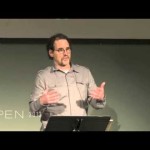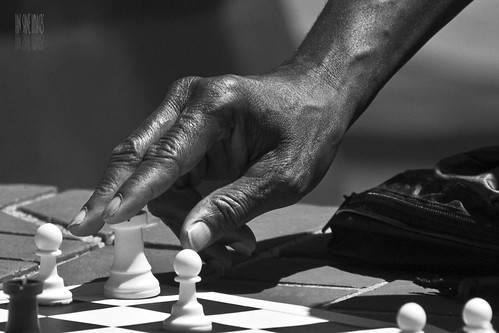We run our website the way we wished the whole internet worked: we provide high quality original content with no ads. We are funded solely by your direct support. Please consider supporting this project.
Open Theism: A Basic Introduction
On Monday and Tuesday, Greg explained Molinism and contrasted it against the open view of the future. (Click here for part 1). Because many see the open view as a limited view of God, it’s helpful to be clear that this has less to do with the nature of God and is about the nature of the future. In his book, Satan and the Problem of Evil, Greg explains the open view of the future in this way:
________________________
With the whole of the Christian tradition, [the open view of the future] affirms that God is omniscient, knowing the past, present and future perfectly. But it also affirms that the future decisions of self-determining agents are only possibilities until agents freely actualize them. In this view, therefore, the future is partly comprised of possibilities. And since God knows all things perfectly — just as they are, and not otherwise — God knows the future as partly comprised of possibilities.
The open view of the future thus affirms that in creating the world God faces the possibility, but not the certainty, that free creatures would choose to oppose him to the extent that they have. This view thereby allows us to consistently affirm that God entered into a somewhat risky endeavor in creating the world. … (91-92)
We might compare this view of God to a master chess player. We would ordinarily consider a chess player to be insecure to the extent that she would need to know ahead of time, or control if possible, all the moves of her opponent to ensure winning a match. Conversely, we would ordinarily consider a chess player wise and confident to the extent that she could ensure victory without relying on these aids. Her confidence is rooted in her ability to wisely anticipate all possible future moves her opponent might make together with all the possible responses she may make to each of these possible moves. She does not know exactly how many moves she will have to make, or what these moves will be, before the match begins, for she does not know exactly how her opponent will move his pieces. If her opponent is formidable, she may even have to place certain pieces “at risk” in order finally to checkmate him. But by virtue of her superior wisdom she is certain of victory. And precisely because her victory does not come from having a blueprint of her opponents moves or otherwise controlling her opponents moves, the wisdom she displays in achieving her victory is praiseworthy.
This is, of course, an analogy. In reality, no humans can come close to foreknowing every possible combination of moves they and their opponents might make throughout the course of every conceivable match. These possibilities do exist ahead of time, however, so the omniscient God of course perfectly knows them. Indeed, to apply the analogy to the real world, we must conceive of God foreknowing and perfectly anticipating from all eternity every possible event that might come to pass. For whatever in fact comes to pass was logically possible from all eternity. Consequently, God would eternally know it as such.
But this vast foreknowledge is of possibilities not of future certainties. God may (and does) sovereignly delimit these possibilities as he sees fit by decreeing the parameters within which free agents can make decisions. There is no “risk” he enters into that he himself did not choose. But in the open view of the future he does not restrict these possibilities to one certain course of action. While that would be a risk-free course of action, it would rule out freedom, which in turn would real rule out the possibility of love. (113-114)
Category: General
Tags: Foreknowledge, Open Theism, Satan and the Problem of Evil, Warfare Worldview
Topics: Open Theism
Related Reading

Open2013 Speakers (Video)
Here’s all of the videos of the speakers and their Q&A’s from Open2013. Unfortunately, there was a mix-up and we didn’t get Jessica Kelley’s presentation taped. We’re working to get her to speak again so we can get that to you. Thanks for posting this on youtube T. C.! And now, without further ado… Greg…

Podcast: If God Has ‘Infinite Intelligence,’ Wouldn’t He Also Necessarily Have Exhaustive Foreknowledge
Greg discusses the relationship between God’s intelligence and his foreknowledge. http://traffic.libsyn.com/askgregboyd/Episode_0195.mp3

“Natural” Evil? 7 Arguments Implicating Satan
Image by Jmos® via Flickr We believe that God is the Creator of nature, but nature simply does not seem to point to a God of love. Parasites, viruses, bacteria, diseases and cancer kill millions and torment millions more, humans and animals alike. Earthquakes, hurricanes, tsunamis, mudslides and volcanoes do the same. Theists have traditionally argued that…

How do you respond to Romans 8:29?
“For whom he foreknew he also predestined to be conformed to the image of his Son, in order that he might be the firstborn within a large family.” One of the greatest treasures given to believers when they open their hearts to the Lord is the promise that they shall certainly be “conformed to the…

What is the significance of Esther 4:14?
The wise Mordecai encourages Esther to bravely risk her life by pleading the case of the Jews before King Xerxes, saying, “…if you remain silent at this time, relief and deliverance for the Jews will arise from another place, but you and your father’s family will perish. And who knows but that you have come…

Did God Cause the Polar Vortex?
When is this polar vortex thing going to end? It’s March, and even in Minnesota we expect to see temperatures warmer than this. With all of the sleet and cold in the south, it seems like schools are closing more than they are open. While this is not a catastrophic event like a hurricane, tsunami,…

